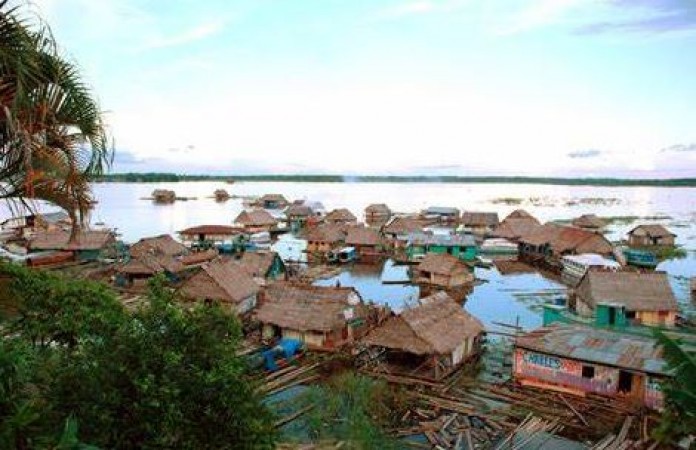
Floating villages are captivating and unique communities that exist in various parts of the world, most notably in places like Venice and Southeast Asia. These settlements are built on water bodies, offering a distinct way of life that combines cultural heritage, resourcefulness, and environmental adaptation. In this article, we will delve into the fascinating world of floating villages, exploring the construction techniques, daily life, and the unique transportation methods employed by these communities.
Floating villages are human settlements constructed on bodies of water such as rivers, lakes, or oceans. These communities have a rich history, often rooted in the necessity to adapt to geographical challenges. They can be found in different parts of the world, but they are particularly prevalent in regions like Southeast Asia and Venice, Italy.
The Origin and Purpose of Floating Villages
Floating villages have their roots in the need to adapt to specific environments. In Southeast Asia, for example, communities have built homes on water as a response to periodic floods and limited land availability. Similarly, Venice emerged as a floating city due to its unique lagoon geography and the necessity to navigate the surrounding marshy areas.
Construction Techniques of Floating Villages
Building a floating village requires ingenuity and resourcefulness. Various construction techniques are employed, including the use of buoyant materials such as bamboo, timber, and even recycled materials like plastic bottles. These materials are skillfully combined to create sturdy platforms and structures that can withstand the water's movements.
Life in a Floating Village
Living in a floating village offers a distinctive way of life. These communities have adapted to their watery surroundings, with houses, schools, markets, and places of worship all built on floating platforms. Daily activities revolve around fishing, aquaculture, and crafts. Community bonds are strong, and self-sufficiency is key to their survival.
The Role of Waterways
Waterways play a vital role in the functioning of floating villages. They serve as avenues for transportation, communication, and trade. Rivers and canals become bustling thoroughfares, connecting different parts of the village and facilitating interaction among residents.
Transportation in Floating Villages
Transportation in floating villages is a unique experience. Instead of conventional roads, watercraft becomes the primary means of getting around. Traditional boats such as longtail boats, sampans, and canoes are commonly used for everyday travel, while larger vessels cater to tourism and commercial activities. These waterborne transportation methods offer a charming and picturesque way to explore these communities.
Cultural Significance and Tourism
Floating villages hold immense cultural significance and often become tourist attractions. Visitors are drawn to the vibrant communities, their traditional practices, and the chance to witness a way of life that is vastly different from their own. Tourism can bring economic benefits to these villages, but it also raises questions about preserving cultural authenticity and sustainable development.
Environmental Challenges and Sustainability
Floating villages face several environmental challenges, including water pollution, habitat degradation, and the impact of climate change. As these communities rely heavily on water resources, ensuring their long-term sustainability is crucial. Efforts are being made to implement sustainable practices, such as waste management systems, eco-tourism initiatives, and the use of renewable energy sources.
Conclusion
Floating villages embody the ingenuity and resilience of communities adapting to unique environmental circumstances. These vibrant settlements offer a glimpse into a way of life intimately connected with water. From their construction techniques to their transportation methods, every aspect of floating villages tells a story of human creativity and resourcefulness.
Agra's rich history and iconic attractions unveiled
Popular Places For Destination Wedding In India
If you are planning to go to Pahalgam, then know here the top 5 places to visit